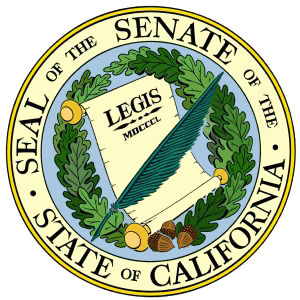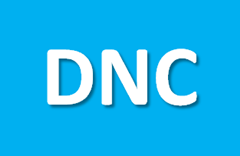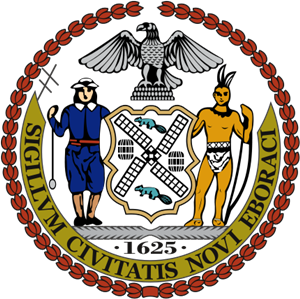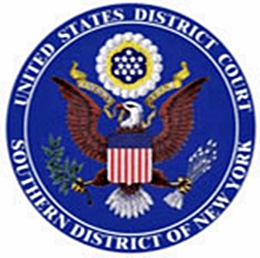In an end-of-session bipartisan push, the Legislature and governor have come to agreement on ethics reform measures. Their five-point plan includes the following: With more disclosure measures in place, super PACs are now able to give and receive unlimited contributions […]
 In an end-of-session bipartisan push, the Legislature and governor have come to agreement on ethics reform measures.
In an end-of-session bipartisan push, the Legislature and governor have come to agreement on ethics reform measures.
Their five-point plan includes the following:
- With more disclosure measures in place, super PACs are now able to give and receive unlimited contributions if they do not coordinate with a candidate;
- Public officers convicted of corruption may face revocation or reduction of their pensions;
- First-time political consultants will be required to disclose when they simultaneously represent political officeholders and private sector clients with government business;
- The reporting thresholds for organizations who lobby on their own behalf has been lowered from $50,000 to $15,000 while individual limits have been lowered from $5,000 to $2,500;
- Contributions over $2,500 to organizations engaged in lobbying must now also be reported to JCOPE; and
- 501(c)(4) organizations will now be required to disclose funding if they engage in political activity and receive any financial support and in-kind donations from 501(c)(3) organizations.
Other new features from the plan include imposition of fines up to $10,000 or the amount of promised contingency fees for anyone violating the state’s prohibition on contingency fee lobbying, a delineation excluding all communication with journalists from the definition of lobbying, and more due process rights for individuals being investigated by the Joint Commission of Public Ethics (JCOPE), including the right to a hearing.
June 9, 2016 •
New York Senator Seeks Transparency in LLC Contributions
Sen. Patrick Gallivan has introduced a bill to increase transparency when corporations contribute through limited liability companies (LLCs). Under the current law, corporations may contribute $5,000 per year to a candidate, while LLCs may give up to $60,800. As a […]
 Sen. Patrick Gallivan has introduced a bill to increase transparency when corporations contribute through limited liability companies (LLCs).
Sen. Patrick Gallivan has introduced a bill to increase transparency when corporations contribute through limited liability companies (LLCs).
Under the current law, corporations may contribute $5,000 per year to a candidate, while LLCs may give up to $60,800. As a result, many corporations set up LLCs in order to contribute in excess of contribution caps, and there is no limit on the number of LLCs a corporation may create.
Senate Bill 8035 would require corporations creating LLCs to identify themselves. Unlike other proposed legislation focused on the “LLC loophole,” this bill would not lower the amount an LLC may contribute.
May 13, 2016 •
Maryland Pay-to-Play Disclosure Regulations Proposed
The State Board of Elections has proposed new pay-to-play disclosure rules and regulations. The board seeks to align current rules with the recent legislative change requiring business entities to disclose contributions of certain subsidiaries, even if those subsidiaries do not […]
 The State Board of Elections has proposed new pay-to-play disclosure rules and regulations.
The State Board of Elections has proposed new pay-to-play disclosure rules and regulations.
The board seeks to align current rules with the recent legislative change requiring business entities to disclose contributions of certain subsidiaries, even if those subsidiaries do not have contracts with the state. In addition, the new regulations would increase the amount of time a vendor has to file the initial contribution disclosure form and would clarify internal disclosure obligations and processes for vendor employees and CEOs under current state law.
The proposed rules and regulations remain open for public comment through May 30, 2016.
May 13, 2016 •
California Senate Reverses Ban on Contributions Rule
The California Senate voted to reverse the ban on members raising money from lobbyist employers during budget negotiations. The ban would have gone into effect upon the Governor’s release of the revised budget, which is set for May 13. The […]
 The California Senate voted to reverse the ban on members raising money from lobbyist employers during budget negotiations.
The California Senate voted to reverse the ban on members raising money from lobbyist employers during budget negotiations.
The ban would have gone into effect upon the Governor’s release of the revised budget, which is set for May 13.
The reversal of this rule comes amid an election year where many members of the Senate are running for reelection.
May 11, 2016 •
California Legislature to Begin Budget Work
California Gov. Jerry Brown will release his revised 2016-17 budget proposal on Friday, May 13, 2016. The release of the revised budget triggers a ban on contributions to members of the Senate from the date the proposed revised budget is […]
 California Gov. Jerry Brown will release his revised 2016-17 budget proposal on Friday, May 13, 2016.
California Gov. Jerry Brown will release his revised 2016-17 budget proposal on Friday, May 13, 2016.
The release of the revised budget triggers a ban on contributions to members of the Senate from the date the proposed revised budget is released until the date of enactment of a budget bill for the 2016-17 fiscal year.
The constitutional deadline for the Legislature to pass a budget bill is June 15th.
February 12, 2016 •
DNC Now Accepting Contributions from Lobbyists and PACS
Political contributions from federal lobbyists and political action committee (PACs) are now being accepted by the Democratic National Committee (DNC). A self-imposed ban on receiving contributions from lobbyists and PACs began in 2008 during the presidential campaign. Lobbyists and PAC […]
 Political contributions from federal lobbyists and political action committee (PACs) are now being accepted by the Democratic National Committee (DNC). A self-imposed ban on receiving contributions from lobbyists and PACs began in 2008 during the presidential campaign. Lobbyists and PAC representatives are still prohibited from attending events featuring the president or vice-president or their spouses, according to The Hill.
Political contributions from federal lobbyists and political action committee (PACs) are now being accepted by the Democratic National Committee (DNC). A self-imposed ban on receiving contributions from lobbyists and PACs began in 2008 during the presidential campaign. Lobbyists and PAC representatives are still prohibited from attending events featuring the president or vice-president or their spouses, according to The Hill.
Mark Paustenbach, deputy communications director for the DNC, explained the change to The Washington Post by saying, “The DNC’s recent change in guidelines will ensure that we continue to have the resources and infrastructure in place to best support whoever emerges as our eventual nominee.” Last year it was announced the DNC would accept contributions from lobbyists and PACs for its party conventions.
December 11, 2014 •
NYC Campaign Finance Board Approves Rules Related to Text Message Contributions
In its December 11, 2014, meeting, the New York City Campaign Finance Board approved rules implementing Local Law 116 of 2013, which permits candidates receiving public matching funds to receive contributions via text message. The rules permit public funds to […]
 In its December 11, 2014, meeting, the New York City Campaign Finance Board approved rules implementing Local Law 116 of 2013, which permits candidates receiving public matching funds to receive contributions via text message.
In its December 11, 2014, meeting, the New York City Campaign Finance Board approved rules implementing Local Law 116 of 2013, which permits candidates receiving public matching funds to receive contributions via text message.
The rules permit public funds to match the text message contribution once those contributions are paid via the contributor’s phone bill. The rules further establish record keeping requirements for text message contributions and a process to certify the identity of the contributor.
The rules will take effect 30 days after final publication in The City Record.
April 28, 2014 •
Federal Court in NY Strikes Down Aggregate Limits
The U.S. District Court for the Southern District of New York struck down a campaign finance law limiting contributions to super PACs. Sections 14-114(8) and 14-126 of the New York Election Law impose an annual aggregate contribution limit of $150,000 […]

The U.S. District Court for the Southern District of New York struck down a campaign finance law limiting contributions to super PACs. Sections 14-114(8) and 14-126 of the New York Election Law impose an annual aggregate contribution limit of $150,000 per contributor. Plaintiff New York Progress and Protection PAC challenged the aggregate contribution limits on First Amendment grounds.
The committee, although ruled by the court to be an independent expenditure committee, was formed to support the candidacy of Republican Joseph Lhota, the unsuccessful New York City mayoral candidate in 2013.
Judge Paul A. Crotty, citing the precedent established in Citizens United and McCutcheon, enjoined New York’s aggregate contribution limit as applied to independent expenditures.
In light of the United States Supreme Court ruling in McCutcheon v. FEC, the Los Angeles Ethics Commission announced it would no longer enforce the aggregate limits on contributions to city and school board candidates. Limits on contributions to individual […]

In light of the United States Supreme Court ruling in McCutcheon v. FEC, the Los Angeles Ethics Commission announced it would no longer enforce the aggregate limits on contributions to city and school board candidates.
Limits on contributions to individual candidates remain in place.
Photo of the Los Angeles skyline by Nserrano on Wikimedia Commons.
State and Federal Communications, Inc. provides research and consulting services for government relations professionals on lobbying laws, procurement lobbying laws, political contribution laws in the United States and Canada. Learn more by visiting stateandfed.com.

